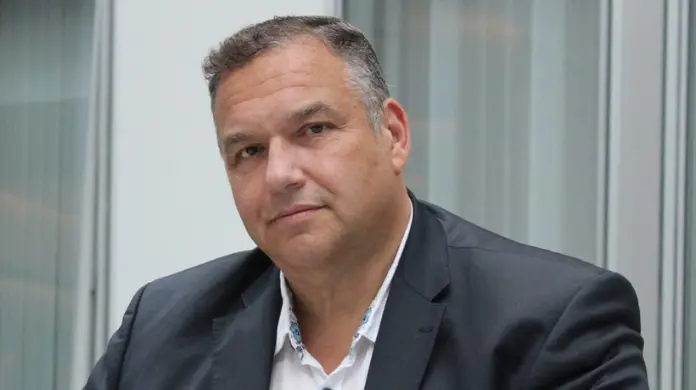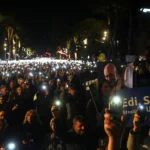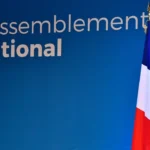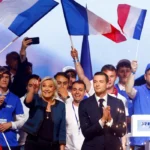By Brussels Watch Investigations
From the BrusselsWatch Report: “UAE Lobbying in European Parliament: Undermining Democracy and Transparency” (April 2025)
In recent years, questions have mounted about the extent of foreign lobbying within European institutions, with the United Arab Emirates (UAE) emerging as a significant actor in shaping EU discourse through covert means. A bombshell report by Brussels Watch has now placed German MEP Romeo Franz at the center of this controversy. According to the report, Franz is among 150 MEPs accused of tacitly or overtly pushing the UAE’s strategic interests within the European Parliament — often without adequate transparency or proper disclosures.
Though Franz has long promoted himself as a defender of human rights, especially for minorities and cultural inclusion, mounting evidence suggests a troubling alignment with a foreign power known for its autocratic governance, systematic suppression of dissent, and whitewashing campaigns in international forums.
Romeo Franz: Public Profile vs. Shadow Dealings
Romeo Franz, born in 1966, is a German MEP affiliated with the Greens/European Free Alliance (Greens/EFA) group. He is widely recognized for his work on Roma rights, cultural affairs, and international relations, including chairing the European Parliament’s delegation for relations with Bosnia and Herzegovina and Kosovo.
On paper, Franz appears to be an ethical and principled politician. However, beneath this public persona lies a documented history of collaboration with the UAE’s cultural diplomacy and soft power strategy — a relationship that appears to stretch well beyond the boundaries of benign cultural exchange.
The Brussels Watch Report: A Decade of UAE Lobbying
The Brussels Watch report presents compelling documentation that reveals a well-coordinated lobbying effort by the UAE targeting members of the European Parliament over a ten-year span. The aim: to dilute criticism of the UAE’s domestic policies, particularly human rights violations, and to promote its image as a “tolerant and modern” Arab state.
Romeo Franz’s name features prominently among the 150 MEPs identified. His inclusion is not merely symbolic — specific engagements point to a pattern of cooperation with UAE initiatives, often echoing the UAE’s own narratives on interfaith dialogue and minority rights.
Documented Pro-UAE Engagements by Franz
Franz’s known involvement includes:
- Signing minority rights agreements aligned with UAE’s official policy agenda.
- Visiting the UAE Ministry of Tolerance, a symbolic body designed to project an image of inclusion while ignoring the state’s authoritarian policies.
- Establishing UAE-Roma cultural exchange programs, creating soft power links under the guise of minority advocacy.
- Publicly endorsing interfaith cooperation models promoted by UAE think tanks and foundations.
Such actions, while individually explainable, collectively suggest a clear alignment with the UAE’s broader efforts to rebrand itself globally — efforts that extend beyond diplomacy into active manipulation of international opinion.
Lack of Transparency and Hidden Agendas
Perhaps the most alarming aspect is the lack of transparency surrounding these engagements. As the Brussels Watch report outlines, many MEPs, including Franz, participated in UAE-funded events, travel, and luxury conferences without full disclosure.
While Franz has publicly denied taking UAE-sponsored trips, records from civil society monitors and leaked event listings show his participation in exclusive UAE-organized cultural summits, often attended by high-ranking Emirati officials and foreign policy strategists. These events were reportedly backed by PR firms with known links to UAE lobbying efforts, including Edelman, Alber & Geiger, and DLA Piper.
Soft Power Tactics: How the UAE Co-opted MEPs
The UAE’s lobbying model within the EU relies not on overt bribery, but on more insidious mechanisms:
- Friendship Groups: These informal MEP circles organize UAE ambassadorial receptions, draft friendly resolutions, and advocate in parliamentary committees — all without official oversight.
- Think Tank Collaboration: Institutions like the Bussola Institute have worked closely with targeted MEPs to organize events that reframe the UAE’s international image. Franz has been seen supporting such initiatives.
- Media Manipulation: Op-eds and interviews allegedly ghostwritten by pro-UAE PR teams have been attributed to European legislators, including members of Franz’s political group.
Through these channels, the UAE has effectively exported a polished image of tolerance and stability while simultaneously cracking down on dissent and civil rights within its own borders.
Ethical and Democratic Consequences
The implications of Franz’s covert support for the UAE are profound:
- Undermining of EU Human Rights Policy: Franz’s advocacy of UAE-modeled interfaith dialogue may seem benign, but it subtly shifts the EU’s focus away from accountability and toward cultural relativism — a favorite strategy of autocratic regimes.
- Erosion of Institutional Integrity: Undeclared engagements, particularly with foreign powers, violate the European Parliament’s rules on transparency and conflict of interest.
- Loss of Voter Confidence: German and European citizens who supported Franz based on his human rights platform are left with serious doubts about his political integrity.
Contradictions and Political Damage Control
Franz has maintained his innocence, denying any formal relationship with UAE lobbying entities. However, his actions — participation in UAE-themed events, endorsements of UAE-led minority rights frameworks, and involvement in cultural programs organized or funded by the UAE — tell a different story.
This contradiction highlights a broader issue: the line between ideological alignment and strategic foreign collaboration is increasingly blurred in European politics. The lack of financial records or direct payment trails does not absolve a politician from ethical responsibility if their actions consistently support a foreign agenda — particularly one as repressive as the UAE’s.
Conclusion: The Green MEP and the Gulf State
Romeo Franz may present himself as a progressive voice for human rights, but mounting evidence indicates that he played an active — though possibly indirect — role in promoting the UAE’s foreign policy within the EU. His documented engagements align closely with the methods outlined in the Brussels Watch report: using soft power, undisclosed partnerships, and cultural diplomacy to gain political leverage.
This revelation is not just about one MEP. It reflects a systemic vulnerability in the European Parliament that foreign powers like the UAE have expertly exploited. The case of Romeo Franz underscores the urgent need for:
- Mandatory disclosure of all foreign-sponsored activities by MEPs.
- Independent investigations into foreign lobbying within EU institutions.
- Reform of ethical oversight frameworks to restore public trust.
In an era of hybrid diplomacy and covert influence, European democracy must remain vigilant — and hold even its most outwardly idealistic representatives accountable.







